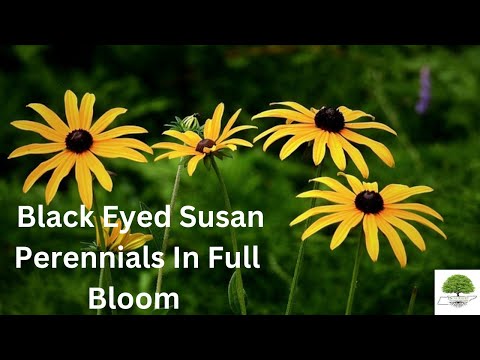Black Eyed Susan- Spring's Most Vibrant Perennial
Black-eyed Susan perennial is a beloved native perennial that adds cheer with its iconic yellow petals and brown center. It is in the same family as daisies and coneflowers. It offers heavy supplies of pollen and nectar, attracting an array of birds that disperse the seeds from the cone center of the flowers. Its nectar-producing ability attracts hummingbirds and butterflies. Birds also feast on the seed pod centers of this plant.
Plant Details
Family: Aster (Asteraceae)
Light Requirement: Full sun
Water Needs: High
Height: 2-3 ft.
Spread: 2-3 ft.
Growth Rate: Fast
Bloom Time: Summer
Flower Color: Yellow
Wildlife Value: Attracts bees and butterflies

Black Eyed Susan Landscape Uses & Garden Care
Rudbeckia hirta is a fast-growing, low-maintenance plant that will become an instant hit in your garden. Cut and come again: Enjoy consistent blooms day after day from your cutting flower garden! They bloom from spring through early fall, when most other flowers are already finished blooming.
Place some in your garden as a great addition to the front of the border or your cottage garden. Make a bold statement in a pollinator or butterfly garden, or let their wild side shine in meadow-inspired, naturalistic-style gardens. Pair with coneflower, Joe Pye, and garden phlox for a winning combination that will turn heads when neighbors walk by your front yard.
The beauty and easy care of this plant will truly win you over and have you singing its praises. Give it full sun, ample space to grow, and water when the soil is dry. No need to water if it rains regularly without a drought. This plant does not require fertilizer. You can add compost or leaf mold to the soil when planting with a slow-release fertilizer.
Key Benefits & Wildlife Value of Rudbeckia Plants
This vibrant perennial will attract pollinators to your garden, including bees, wasps, and butterflies. It is the butterfly's larval host, including the Bordered Patch and Gorgone Checkerspot. Leave the stems of this plant to overwinter to help increase the populations of these butterflies.
Black Eyed Susan adds bright pops of color to the landscape, bouquets, and floral arrangements with its vibrant yellow petals and dark brown centers.

Exposure
Black-eyed Susans thrive in full sun, requiring at least 6 hours of direct sunlight daily. They can tolerate partial shade, but blooming may be reduced. Full sun ensures the best flowering and overall health of these hardy perennials.
Height at Maturity
Over 12"
Usage
Pollinator Plant
Shipped As
Bare-root
Ships
USPS
Planting Zones
3-9




